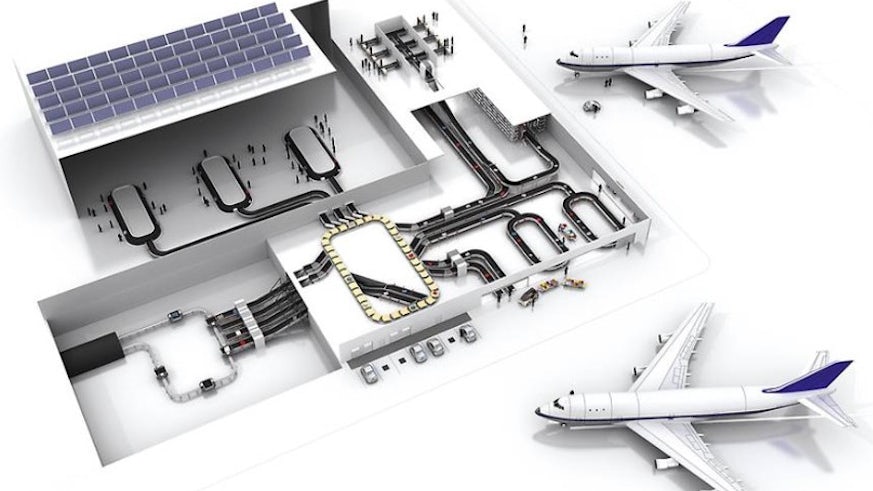Academic knowhow for predictive maintenance
13 July 2020

An industry-academia partnership has helped ease the secure transfer of passenger baggage between aircraft and terminals at Heathrow Airport.
Siemens Logistics GmbH provides logistics solutions for airports and airlines worldwide, from baggage handling with check-in, belt and tray conveyor systems to efficient sorting and baggage claim facilities.
As passenger numbers continued to increase in 2016, the company sought out researchers from Cardiff University to support the development of a cost-effective solution to detect and prevent fatal failure in high-speed terminal connection tunnels.
Siemens Logistics with the support of Cardiff Business School’s academic team, had a unique opportunity to apply and test an innovative research methodology (known as Technical Action Research) that allows a researcher (mostly embedded in the organisation) to trial and test solutions, and helps large-scale organisations understand, plan and implement change.
This innovative solution, in the form of new predictive maintenance methods including vibration monitoring of baggage handling equipment, is now influencing other major airports worldwide.
During the project, Professors Maneesh Kumar and Pauline Found were able to study similar maintenance innovation in other time-critical areas to achieve effective innovation with the possibility for scale-up and replication at other global airports.
Frank Koenig, Senior Project Manager, Siemens Logistics, said: “The partnership has been a resounding success. The project has already won several awards within Siemens Logistics; and it’s now being used by the service organisation worldwide. There have been direct benefits for several stakeholders.
Professors Maneesh Kumar and Pauline Found, said: “The collaboration has positioned Siemens Logistics and Cardiff Business School at the cutting edge of research into operational excellence. It has helped the School cement a strong project partnership with Siemens Logistics UK, and we are exploring future internships, PhDs, and other opportunities. The case study is now used for teaching to MSC, MBA, and Executive MBA cohorts – with a focus on how to use TAR methodology to develop innovative solutions that can solve industry problems.”
The project also led to interdisciplinary work with Cardiff University’s School of Engineering, linked to the use of machine learning, artificial intelligence, and ‘big data’ analysis linked to airports and warehousing systems worldwide.
Two students from Engineering were able to conduct Master Dissertations based on the airport maintenance problem.
Siemens Logistics is exploring future potential for internships, PhD, and other opportunities to work with Cardiff University.
The collaboration is one of six partnerships recognised for innovation impact by Cardiff University in 2020 – and is being showcased as part of Cardiff’s growing work on innovation nationally and internationally.
Share this story
Learn how our cutting-edge research, technology transfer, business development and student enterprise drive our vision.



